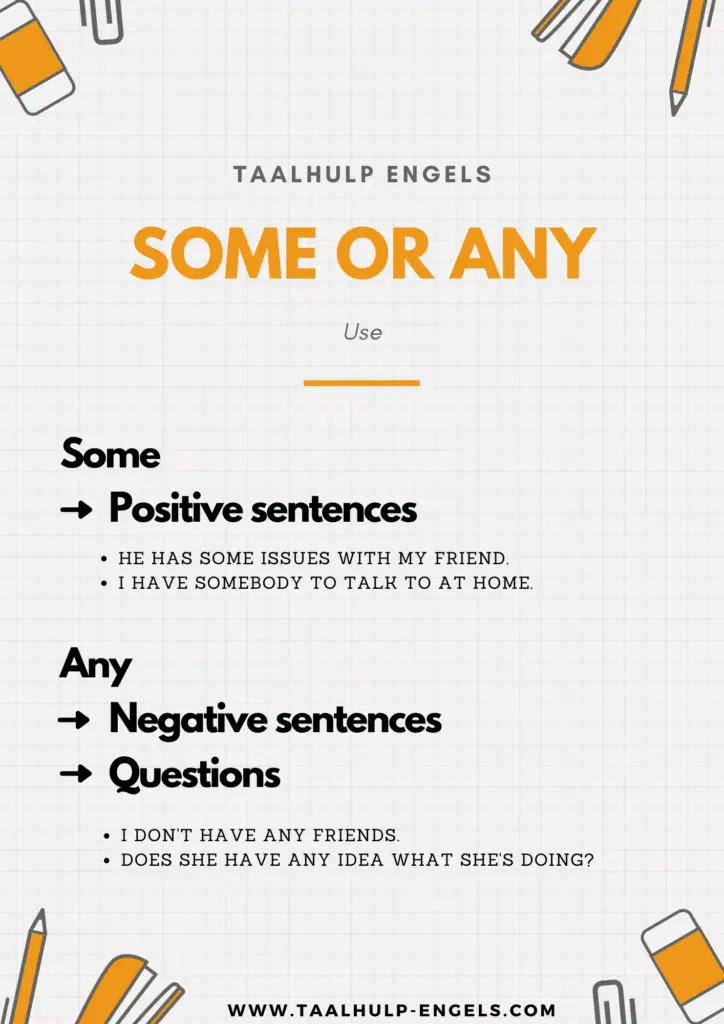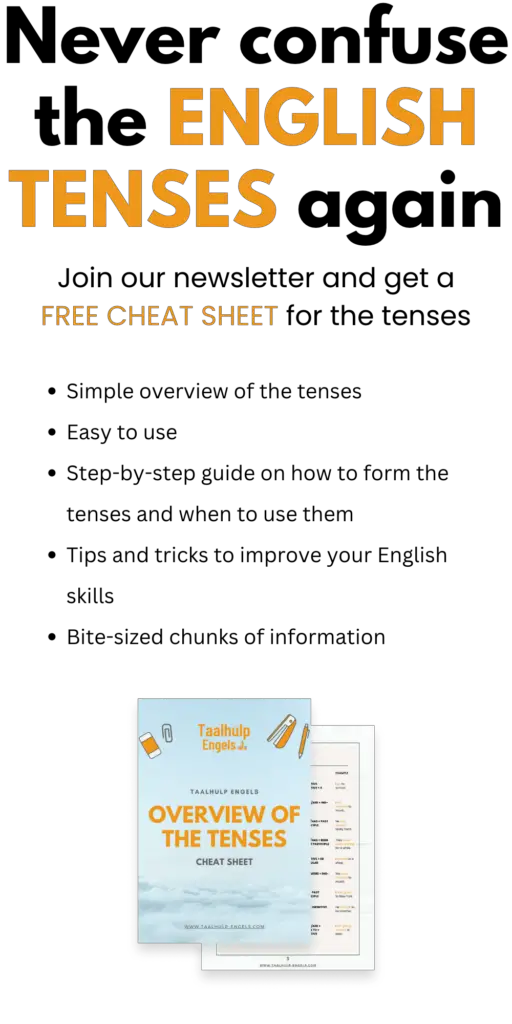The difference between some or any can be confusing if you don’t know when to use some and when to use any. This article offers a full overview of when to use some or any. There are also example sentences and exercises.
Some or any
Some and any are used for singular and plural nouns in English. They have the same meaning but are used in a different context.
When to use some
The general rule is to use some in affirmative/positive sentences. This is the case for some, but also for words that start with some such as somebody and someone. For example:
- He has some issues with my friend.
- I have somebody to talk to at home.
Some is also used when the exact quantity is not important.
- I have some friends.
- They want some apples.
You can also use some to talk about unknown things or people.
- Some girl left a message for you.
- There was some guy who wanted to see you.

When to use any
The general rule is to use any in negative sentences and questions. Negative sentences are also sentences with ‘never’ and ‘without’. This rule is also used for words that start with any such as anybody, anything, and anyone. For example:
- I don’t have any friends.
- He never talks to anyone.
- Does she have any idea what she’s doing?
- Do you know anything about what happened?
Exceptions
You generally use some in positive sentences and any in negative sentences and questions. However, there are some exceptions to these rules.
Any is also used in positive sentences when you don’t refer to anything or anyone specific.
- Anything you find here is mine.
- Anyone here will help you if you’re in trouble.
Some is also used in questions, but only for a request or offer.
- Do you want some ice cream?
- Could I have some wine?
Some or any exercises
- Some or Any Exercise 1
- Some or Any Exercise 2
- Some or Any Exercise 3
- Some or Any Exercise 4
- Some or Any Exercise 5
- Something or Anything Exercise 1
- Something or Anything Exercise 2
- Something or Anything Exercise 3
- Something or Anything Exercise 4
- Something or Anything Exercise 5


